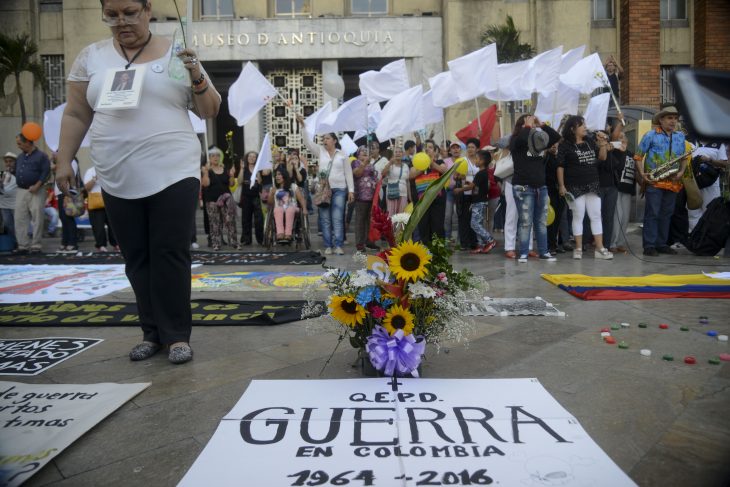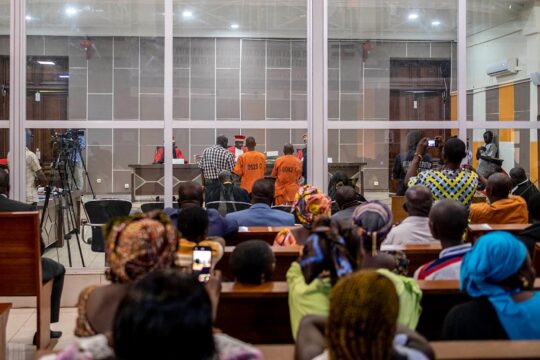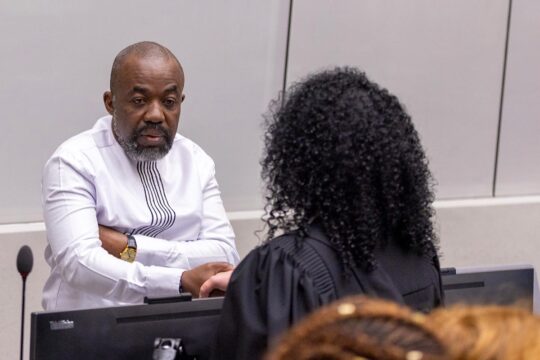The International Criminal Court (ICC) sentencing of former Congolese warlord Jean-Pierre Bemba to 18 years in jail was the highlight of this week in transitional justice. Bemba is the most senior political leader ever convicted by the ICC. He was one of the four Vice-Presidents of the Democratic Republic of Congo (DRC) from July 2003 to December 2006. His sentence is the longest so far imposed by the ICC.
Bemba was convicted of war crimes and crimes against humanity for failing to prevent his troops committing numerous crimes, including murder and rape, in the neighbouring Central African Republic (CAR) in 2002-2003. This conviction and sentence is also significant in terms of new international jurisprudence on command responsibility and sexual violence.
Despite these steps forward, the verdict has been criticized as too one-sided. “The trial has not dealt with large parts of what happened during the 2002-2003 civil war in the Central African Republic,” wrote French daily newspaper Le Monde. Neither CAR President at the time Ange-Félix Patassé nor his successor François Bozizé, who ousted Patassé in a coup, have been bothered by the ICC.
Another highlight of the week was the peace accord signed on Thursday June 23 between the Colombian government and the main rebel movement, the Armed Revolutionary Forces of Colombia (FARC). “May this day be the last day of the war,” said FARC leader Timoleon Jimenez, alias “Timochenko”, whilst Colombian President Juan Manuel Santos said this was “the end of FARC as an armed group”.
Theoretically, this accord puts an end to 32 years of war, which has left some 300,000 people dead. In terms of justice, however, it appears far from perfect, as it grants considerable impunity both to FARC and to government soldiers and paramilitaries suspected of grave human rights abuses.
On another continent, the Myanmar of Aung San Sui Ky seems as far as ever from a process of justice and reparations. As UN Special Advisor on the Prevention of Genocide Adama Dieng writes, the Burmese government is denying the identity of the Rohingyas, a persecuted Muslim minority, by telling the international community it should not even use the term “Rohingya”. “Even the use of the term “Rohingya” to describe this religious and ethnic group has become a sensitive and highly politicized issue,” he writes. “In fact, the Rohingyas are not permitted to exercise their right to self-identification which is nevertheless recognized by international human rights law and enshrined in the jurisprudence of treaty committees on human rights. Instead, they are referred to in denigrating terms such as intruders, foreigners or undesirables.” Once again, the Nobel Prize winner has given in to popular opinion and to the army which oppressed her for so many years.
“Theories and propaganda on racial purity and superiority have frequently been used to promote hatred,” says Dieng, with notable reference to Nazi Germany.
An so it goes in Kenya, where eight MPs were arrested and then freed for racist and hateful speech likely to stir the ill-extinguished flames of violence that followed 2007 elections and left hundreds dead. "The general consensus among Kenyans is that hate speech must never be allowed to gain traction," writes correspondent Aileen Kitumai, quoting a Kenyan Standard editorial. "We can have our political differences, because that is what democracy is all about, but at all times the interests of the country must take precedence."
And finally, we should not forget the power of civil society, which can, like in Tunisia, shake up dormant or threatened transitional justice processes with its youth, convictions and social networks. JusticeInfo’s Tunis correspondent Olfa Belhassine writes that “after discussing, preparing and firming up in secret, the response of the young has spilled onto the streets. This is their territory, the place where they regained their freedom, the right to express their anger, creativity and energy in the days of the revolution”. And so activists of the Manich msamah group are sticking damaging “Wanted” posters up for the friends and accomplices of the former regime that seek amnesty through the “economic and financial reconciliation” Bill of President Béji Caied Essebsi. They are likely to be effective.






